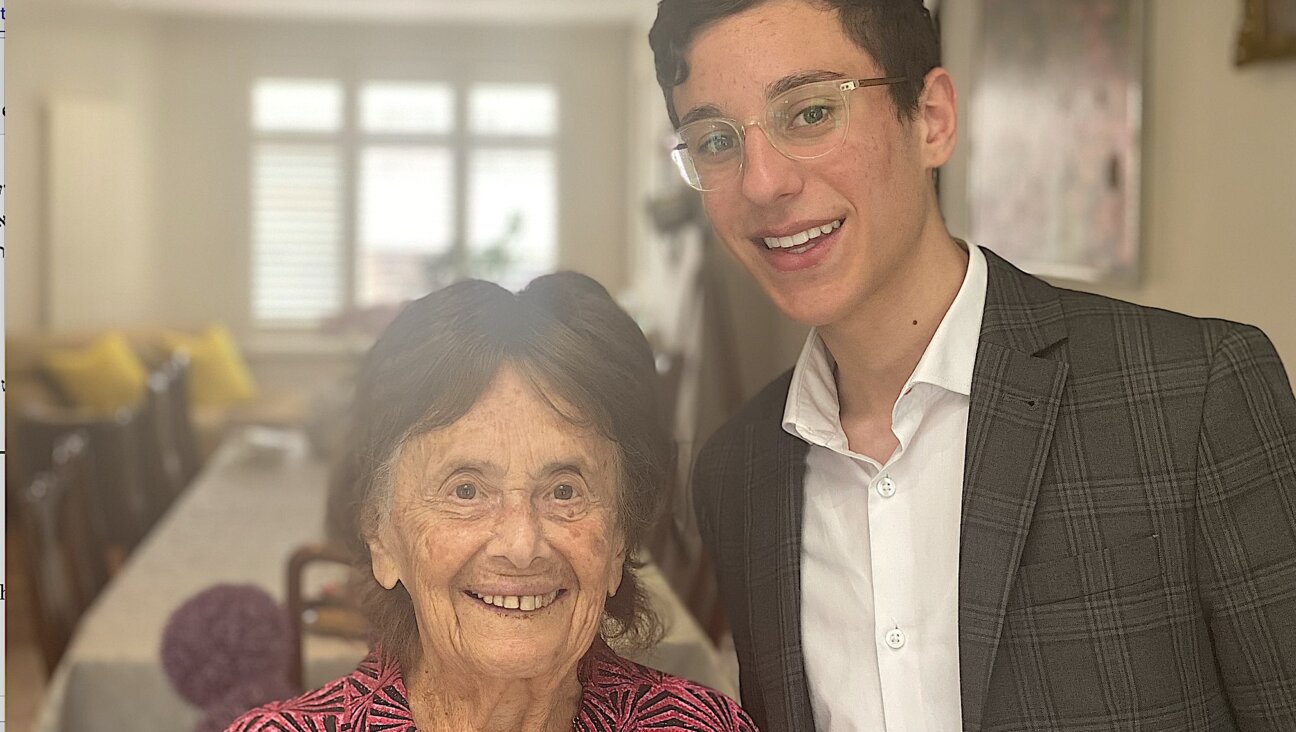February 12, 2009
Don’t Forget Yiddish
Your editorial on the need for Hebrew in order to sustain Jewish life in America is particularly surprising coming from the Forward, which throughout its 100-plus year history, and even today, has as a core mission sustaining and advancing Yiddish as a culture and a language (“Taking Hebrew Seriously,” January 29).
Although the language of Jews in America is really English, the need for Jews in any country to sustain a culture does require some association with a Jewish language. If one desires the focus of that culture to be Israel or religious Judaism, then Hebrew is relevant. But I believe that, without rejecting Israel-centered or religion-centered Jewish identity, there remains a secular Jewish identity which, although in every country uses the national language as the principal means of communication, has a common root in Yiddish that serves as a culturally binding force.
Hebrew is fine, but to neglect the influence and ability of Yiddish to foster a sense of Jewish identity is short-sighted — especially for the Forward.
Robert A. Kaplan
President
Workmen’s Circle/Arbeter Ring
New York, N.Y.
Healing the World Begins at Home
In your January 29 editorial “After the Earth Moved,” you identify an “inner struggle” that many American Jews face, to wit, “How much should they support other Jews, and how much should they give to causes in the wider world?” You resolve the question with the answer that American Jews should not make an “either/or” decision; they should “do both.”
I take no issue with that assertion. I agree we should do both. However, the question of “how much” posed in your editorial remains unanswered.
Assuming each of us has limited resources, then how should we divide those resources? There is a subtle (and sometimes not so subtle) battle going on for Jewish hearts and minds on this front. On one side is what I call the universalist camp. On the other side is the Jewish mutual responsibility camp. Neither camp is exclusively universal or exclusively Jewish regarding those whom they assist. But each side does favor either universal or Jewish needs over the other.
So which approach should a Jewish donor or volunteer favor (not exclusively but substantially)? I place myself squarely in the Jewish mutual responsibility camp.
We are called to be a “light unto the nations,” so that other peoples will learn from our example and improve the ethical, caring relationships within their own communities and nations. We need to put a greater portion of our individual resources toward our own community members’ needs, not because of some tribalistic self-centeredness, but because if other people see how we take care of our brothers and sisters, perhaps they will follow our lead and all communities will benefit. I would suggest that a greater focus on the particular is the faster route to tikkun olam — repairing the world — than the chaos of trying to respond to each and every need in a world of unfathomable and unlimited needs.
This does not mean that we should ignore crises such as Haiti, Hurricane Katrina and the 2004 Asian tsunami. The issue is not either/or, but rather how much and to whom. And, how can we most effectively help not only our own but all?
Gary O. Aidekman Madison, N.J.
Letters to the editor may be sent via e-mail to [email protected] or mailed to the Forward, Attn: Letters to the Editor, 125 Maiden Lane, New York, N.Y. 10038. Shorter letters stand a better chance of being published.





















